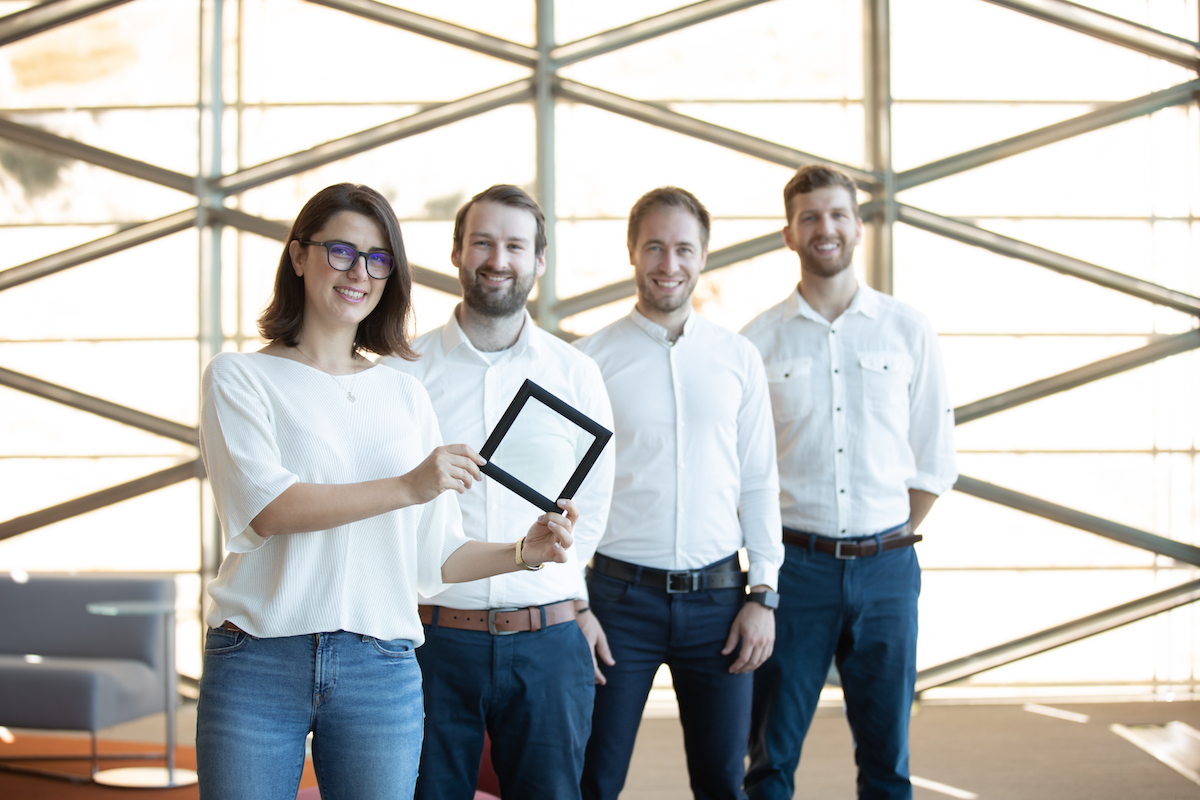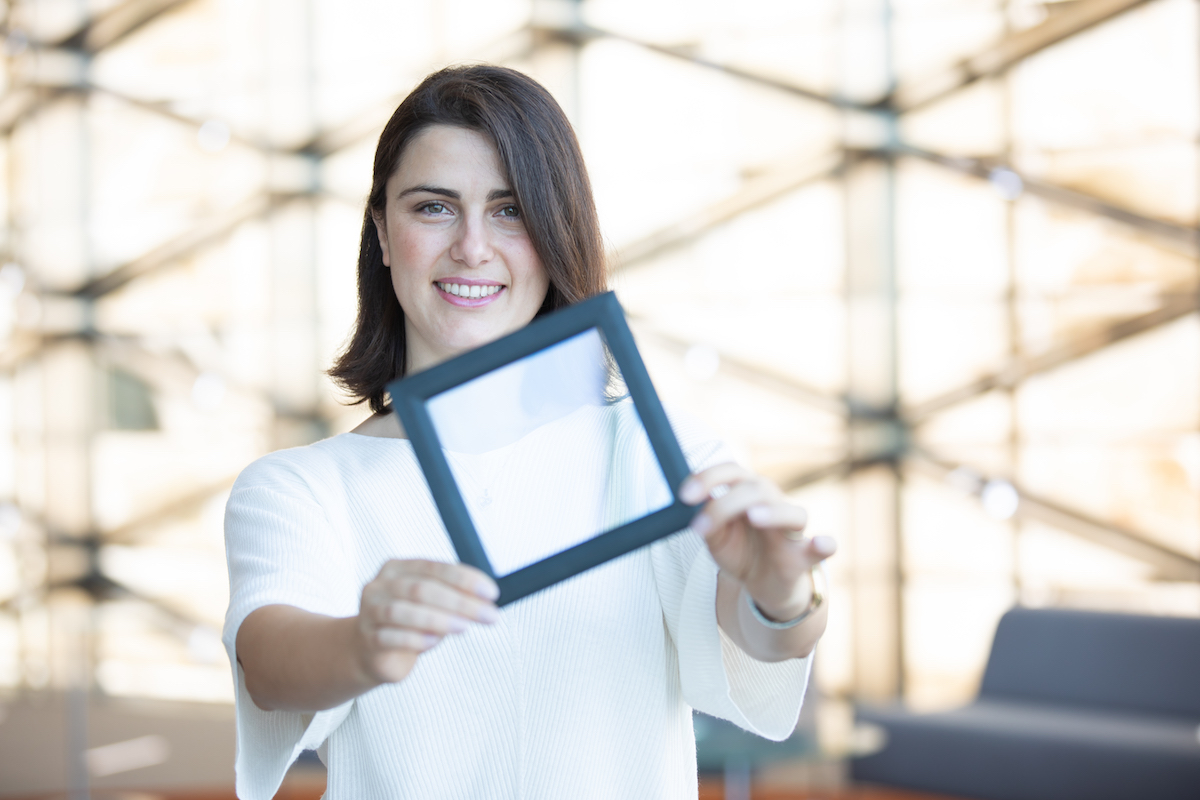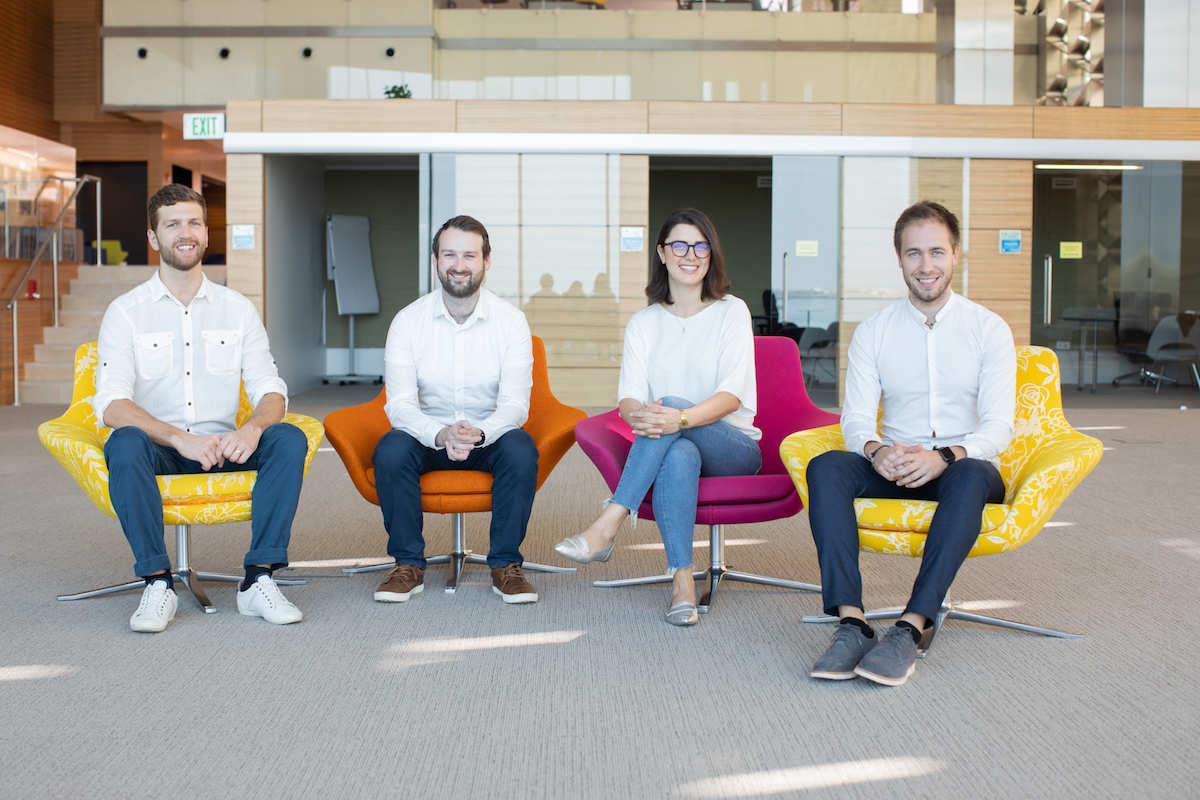Turning windows into solar panels

Derya Baran (first from left), KAUST assistant professor of material science and engineering, and a team established startup iyris, which develops building-integrated photovoltaics that maintain transparency to visible light. Photo by Sarah Munshi.
-By Lulwah Shalhoub, KAUST News
Cities of the future require creating zero energy smart buildings. By 2025, 68 percent of the world population is expected to live in urban areas, according to the 2018 Revision of World Urbanization Prospects produced by the United Nations. Alternative sources of energy have to be considered when launching future urban projects.
"In the cities of the future, I believe that every building will produce its own energy," said Derya Baran, KAUST assistant professor of material science and engineering and member of the University's Solar Center (KSC).
"Everything will go renewable. There is no other way. I am not saying oil will be gone, but I think in the future we will use it in more valuable ways than just fuel," she added.
The KSC runs industrially translational projects to commercialize research. Baran and her team have developed a photovoltaic technology that allows any window to become a transparent solar panel.

Derya Baran, KAUST assistant professor of material science and engineering, and her team at startup iyris developed a photovoltaic technology that allows any window to become a transparent solar panel. Photo by Sarah Munshi.
"The transparent solar area is very exciting and a potentially quite large market," said Iain McCulloch, director of the KSC and KAUST professor of chemical science. "The technology that Derya and her group are developing with low cost manufacturing could have a big impact."
More than 70 percent of domestic electricity in Saudi Arabia is consumed in cooling and air conditioning, according to an in-Kingdom research paper published in 2017. At present, electricity production relies heavily on burning fossil fuels that are not only of high cost but also harm the environment through the release of emissions that increase air pollution. In line with the Saudi Vision 2030 objectives, reliance on fossil fuels for electricity production is expected to be reduced as sustainable sources of energy emerge to fulfill demands.

The team from startup iyris believes their technology could be 'the future for new cities,' said iyris co-founder Derya Baran (second from right), KAUST assistant professor of material science and engineering. Photo by Sarah Munshi.
The Red Sea Farm that Mark Tester, KAUST professor of plant science, started with his University colleagues, is iyris' first customer. The Red Sea Farm is an agricultural-based business the utilizes the research done by the KAUST Physical Science and Engineering division. The purpose is to use iyris' windows to create a better environment for plant growth and increase crop yield.
"This is a really exciting prototype under the umbrella of KAUST, where two ideas are coming together from different perspectives and building a very nice demonstration of the potential of both technologies," said McCulloch.
"KAUST provides an environment where these researchers can come together, meet and discuss the technology and also receive support from KAUST to make it a reality. Very often, ideas fail because they don't have the initial impetus to get over the first hurdle, and once you get that momentum, it becomes much easier...[W]hat KAUST can do like no other university is to provide the infrastructure and capability to allow the first hurdle to be overcome," he added.
Bridging the gap between the science and the application can be a challenge.
"We are pressing ahead, developing our product and looking for investment and partnership to scale up," Baran added.
Related stories:
-
TAQADAM Startup Accelerator funds seven promising startups
-
KAUST takes semi-saline irrigation to a new level
-
KAUST startups take top prizes
-
KAUST and SABB join forces to create innovative startups

